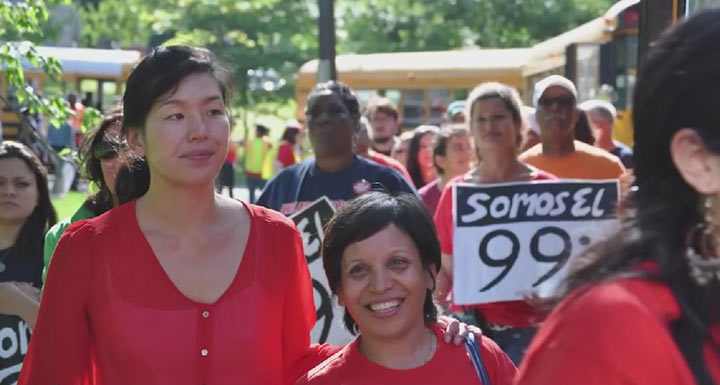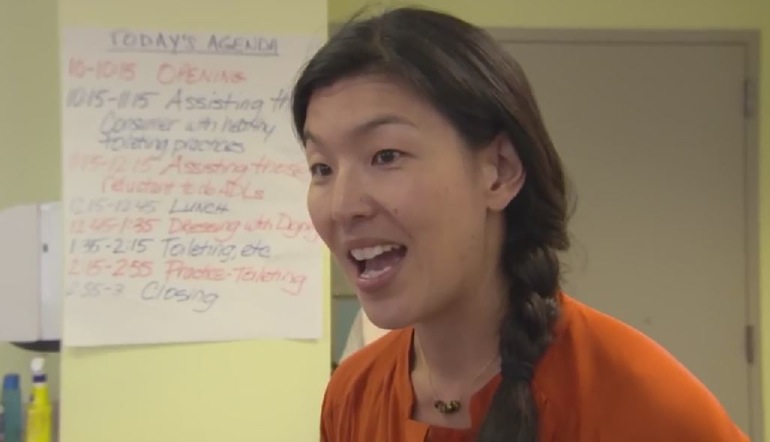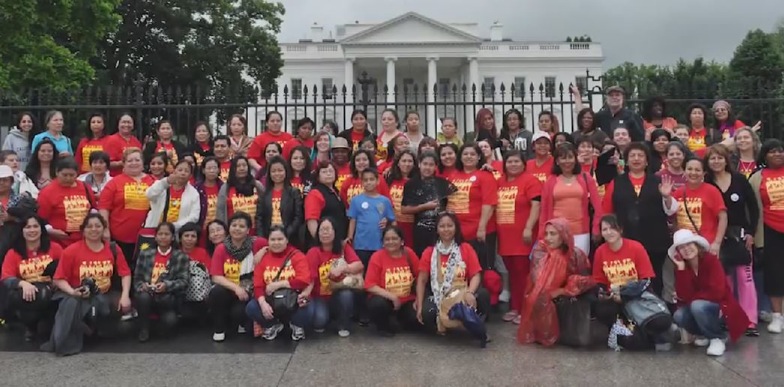
The value of domestic labor
NEW YORK.- Ai-jen Poo, a pioneer in the labor organization that for the first time in U.S. history unionized domestic workers, a sector historically excluded from labor laws and ignored by the traditional unions, was recently recognized with one of the 21 “genius prizes” awarded annually by the MacArthur Foundation.
The prize consists of $625,000, delivered over five years, to support, without commitments or restrictions, the winner’s projects.
The daughter of Taiwanese immigrants and a graduate from Columbia University, this 40-year-old woman, with sweet though firm speech, heads the National Domestic Workers Alliance. Since Poo founded it, six years ago in New York, the Alliance has 43 affiliates in 28 cities and 16 states.
“There’s more than 200,000 domestic workers in New York State and 2 million throughout the country,” Poo says. “We have a lot left to do.”
 “Ai-jen Poo is a labor organizer whose compelling vision of the value of home-based care work is transforming the landscape of working conditions and labor standards for domestic or private-household workers,” the foundation said upon selecting her.
“Ai-jen Poo is a labor organizer whose compelling vision of the value of home-based care work is transforming the landscape of working conditions and labor standards for domestic or private-household workers,” the foundation said upon selecting her.
But it’s not only the MacArthur Foundation that recognizes Poo’s extraordinary work. So do the women who have worked with her and have benefited from her vision and organizational capacity.
“It had to happen. Her work has been exceptional,” says Priscilla González, the young principal organizer of Communities United for Police Reform in New York City, when learning of the award. González was formed as a community activist, working shoulder to shoulder with Poo from 2002 to 2013, organizing domestic workers.
The daughter of an Ecuadorean immigrant who worked as a nanny and housekeeper, González adds: “I learned a lot during the 10 years I worked close to her, particularly about always doing everything possible to support the development of other people. Ai-jen is committed to the fact that the struggle is a collective one.”
That may be Poo’s greatest virtue. She first began to recruit nannies, servants and housekeepers in 1993 by visiting parks and striking conversations on the street with women who pushed baby carriages.
After seven very hard years, she managed, in 2000, to found in New York Domestic Workers United (DWU), an association composed mainly by immigrants from Latin America and the English-speaking Caribbean — many of them undocumented — which she directed until 2009. Today, the DWU is one of the affiliates of the National Domestic Workers Alliance.
“All of us in the Alliance are very enthused,” Poo says. “This award is a reflection of the incredible job done by these women who, by a common effort, have done what many thought impossible: to give visibility and respect to a labor force that has remained invisible for far too long — the women who work every day caring for the homes and families of others. That is the true genius.”
Barely four years ago, New York State took a step that few thought would succeed: thanks to the untiring work done by Poo and the women of Domestic Workers United over seven years, the Albany legislature approved the nation’s first law to guarantee the same protection that other workers have to the thousands of nannies, housekeepers and cooks who work in private homes. California, Hawaii and Massachusetts passed similar laws shortly thereafter.
“Our main achievement has been the recognition that domestic workers do a job that enables others to work and society to function,” says Poo, who in 2011 helped create Caring Across Generations, a campaign focused on caregivers for the elderly. She is its co-director.
“More and more women are working outside their homes and people live longer than ever. We have the largest number of elderly people in history and nobody wants to go to a nursing home,” says Poo about her next project. “People want to stay in their homes and the need for workers who can take of them is growing. However, those workers are not protected.”
How is Poo going to invest the $625,000 that come with the award?
“We’re going to fund scholarships so that domestic workers may learn more about public policy and bring their voices to the table,” she says, faithful to her collective and inclusive vision of the social struggle.
Let’s not lose sight of her. Most certainly, Poo, a real genius of labor organization, has a lot more to contribute to the construction of a more just society.
albor.ruiz@aol.com


